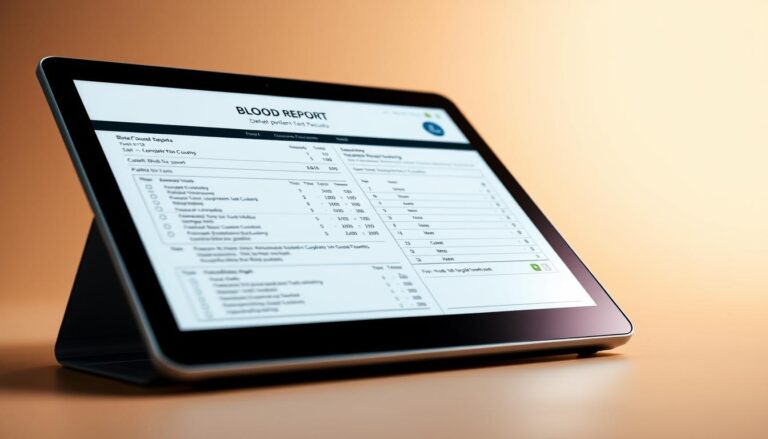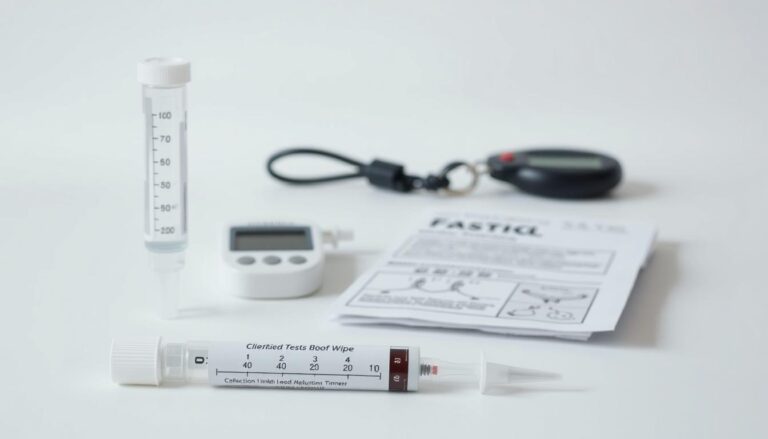How Long Should You Fast Before Blood Work? Complete Guidelines
Before getting blood tests, we often wonder what to do first. One key step is fasting before blood work. Knowing the fasting guidelines is crucial for getting accurate test results. We’ll look into how to prepare for blood tests, including the benefits of fasting and how long you should fast.

When it comes to fasting for blood work, a common question is: how long should you fast? The usual fasting time is 8-12 hours before a blood test. But, the exact time can change based on the test type and your needs. We’ll go into the details of fasting guidelines and offer tips for fasting blood tests. This will help you understand the process better.
For accurate results, it’s essential to follow the recommended fasting guidelines. At our diagnostic centre in Yelahanka, we ensure that patients receive clear instructions on fasting requirements for their specific tests, making the process smooth and stress-free.
Understanding Fasting Before Blood Work: The Basics
Fasting before blood work is key for getting accurate results. Knowing the fasting tips and benefits is important. It helps us prepare for the test and get reliable results. The fasting time varies, but it’s usually 8-12 hours before the test.
Some tests that need fasting include glucose, lipid panels, and liver function tests. These tests check blood sugar, cholesterol, and triglycerides. By fasting correctly, we help doctors diagnose conditions like diabetes and prediabetes.
Here are some key points to consider when preparing for a fasting blood test:
- Fasting for 8-12 hours before the test
- Drinking water to stay hydrated
- Avoiding certain medications and substances that may affect test results
- Wearing short sleeves or sleeves that easily roll up to facilitate blood draw
Understanding fasting before blood work is crucial. By following the right fasting tips and protocols, we get accurate results. Fasting not only helps our physical health but also gives insights into our overall well-being. It’s a vital part of our healthcare routine.
| Test Type | Fasting Requirements |
|---|---|
| Glucose Test | 8-12 hours |
| Lipid Panel | 8-12 hours |
| Liver Function Test | 8-12 hours |
Standard Fasting Duration Guidelines
Fasting times for blood work vary based on the test type. It’s key to follow fasting guidelines for blood tests to get accurate results. Doctors usually suggest fasting for 8 to 12 hours before blood work.
It’s vital to listen to your healthcare provider’s advice for accurate test results. What you eat before fasting blood work matters too. For instance, a glucose test needs an 8-hour fast, while a lipid panel might need 12 hours.
Required Fasting Times for Different Tests
Here are fasting times for common blood tests:
- Glucose test: 8 hours
- Lipid panel: 9-12 hours
- Liver function tests: 10-12 hours
- Iron blood tests: 12 hours
Not fasting correctly can lead to wrong diagnoses and health issues. So, it’s crucial to stick to fasting guidelines and only drink water during the fast.
What to Avoid During Your Fast
Stay away from things that can mess up your test results during fasting. These include:
- Alcohol consumption
- Smoking
- Chewing gum
- Strenuous exercise
By sticking to fasting guidelines and avoiding these activities, you help ensure your blood tests are accurate. This helps your healthcare provider make better decisions about your health.
Preparing for Your Fasting Blood Test
Preparing for a fasting blood test is important. It helps get accurate results. You need to know what to do before the test.
Don’t just skip eating and drinking. Drinking water is key. It makes your veins easier to find for the blood draw.
Try to avoid exercising or smoking before the test. These can change the test results. Also, tell your doctor about any medicines or supplements you take.
- Drink plenty of water to stay hydrated
- Avoid exercising or smoking
- Inform your healthcare provider about any medications or supplements you are taking
- Avoid certain foods and drinks, such as cooked meats, herbal tea, or alcohol
Follow these tips to get accurate test results. Talk to your doctor about how long you need to fast. If you have questions, ask them.
Conclusion: Ensuring Successful Blood Work Through Proper Fasting
Proper fasting is key for getting an accurate blood test result time. By following your healthcare provider’s advice and staying hydrated, you help keep your health in check. This way, you get the best care possible.
Fasting before blood work is important. It helps measure health indicators like glucose, cholesterol, and iron levels accurately. This is crucial for your health.
Whether it’s a routine checkup or specialized testing, fasting correctly matters. It ensures your test results are reliable. By understanding fasting’s role in medical tests, you can manage your health better.
The blood draw process is usually quick and easy. It often takes less than an hour. By staying hydrated, managing any anxiety, and following fasting guidelines, you ensure a smooth experience. This way, you get accurate insights into your health.







